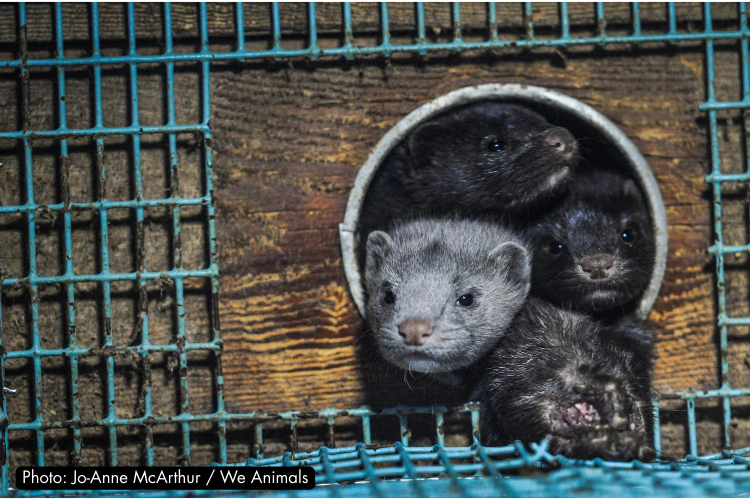Calls for a ban on live animal mascots at US college sports games
The 24/25 college sports season has “devolved into a chaotic circus” campaigners say, as a tiger and longhorn steer have been brought into stadiums.
File photo of a captive tiger.
Animal welfare campaigners are calling for a ban on the use of live animal mascots at college sport games after concerns that captive animals are being exploited.
Welfare concerns have surrounded the use of live animal mascots, as the unnatural environment of a busy stadium full of screaming fans, bright lights and loud noises, can leave animals stressed and terrified.
Yet the 2024/2025 college sports season has “devolved into a chaotic circus”, according to campaigners from the People for the Ethical Treatment of Animals (PETA).
The group has sent a letter to the National Collegiate Athletic Association (NCAA) urging the regulator to introduce a policy that bans live animal mascots at college sporting events.
PETA’s request comes after several controversial incidents where captive animals have been used as team mascots.
Louisiana State University (LSU) was widely criticized for its decision to parade a live tiger on the sports field before kickoff at a football game held in November last year.
A statue of LSU’s tiger mascot on campus.
Welfare concerns were raised regarding the tiger, who was seen pacing in a circle while inside a cage which was kept on the field for around seven minutes. Then further alarm came after news that the game’s tiger had been reportedly sourced from Mitchel Kalmanson, someone who animal welfare groups refer to as a “notorious” animal exhibitor because of his litany of violations of the federal Animal Welfare Act over the last 25 years.
The tiger’s appearance marked the first time the school has used a live tiger mascot at a game since 2015, the year when LSU originally announced it would no longer bring tigers into the stadium.
The University of Texas (UT) at Austin has also been making headlines for its live animal mascot, Bevo, a 1,700-pound Texas Longhorn steer. The animal’s appearance at football games has long raised safety concerns, including a notable incident before the Sugar Bowl in 2019 where Bevo broke free of the metal pen he was confined in and charged at the opposing team’s live-animal mascot.
Bevo has already been barred from several games over safety concerns, but has been admitted back to the sidelines at the Cotton Bowl Classic after a previous ban.
Binghamton University recently made the decision to acquire a live binturong (also known as a bear cat) as the new mascot for its sports team.
PETA says a NCAA policy on the issue of live animal mascots could help tackle the exploitation of animals used as mascots and protect them from the fear and stress they experience at games.
With no policy in place, teams can also continue to acquire new live mascots too.
Binghamton University recently made the decision to start using a young binturong named Bing as a mascot for the school’s sports team. But critics blasted the move, noting that the species is red-listed as “vulnerable” on the International Union for Conservation of Nature Red List of Threatened Species, and flagged that Bing was supplied by a notorious Harpursville-based roadside zoo which has scores of animal welfare violations.
“We’ve come a long way since Alabama kept a live elephant mascot on campus and UCLA brought live bears to its games”, PETA pointed out in its letter to NCAA. “But all animals are unique and interesting individuals with a right not to be exploited. As more and more people realize this, students and sports fans alike are increasingly opposed to using live animals as “spectacles” at sporting events.”
We Have A Favor To Ask…
Species Unite amplifies well-researched solutions to some of the most abusive animal industries operating today.
At this crucial moment, with worldwide momentum for change building, it’s vital we share these animal-free solutions with the world - and we need your help.
We’re a nonprofit, and so to keep sharing these solutions, we’re relying on you - with your support, we can continue our essential work in growing a powerful community of animal advocates this year.






